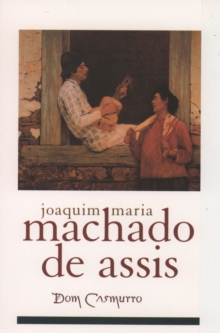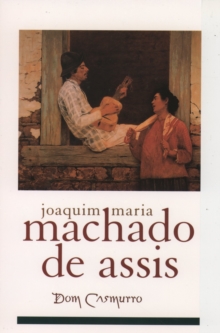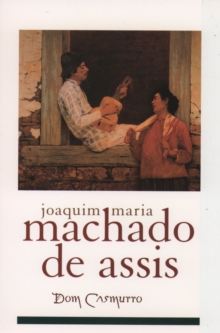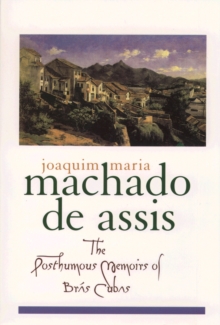
The Posthumous Memoirs of Bras Cubas Hardback
by Joachim Maria Machado de Assis
Edited by Enylton de (Professor of Spanish & Portuguese, Professor of Spanish & Portuguese, Universit Sa Rego
Part of the Library of Latin America series
Hardback
- Information
Description
"Be aware that frankness is the prime virtue of a dead man," writes the extraordinary narrator of The Posthumous Memoirs of Bras Cubas. "The gaze of public opinion, that sharp and judgmental gaze, loses its virtue the moment we tread the territory of death.
I'm not saying that it doesn't reach here and examine and judge us, but we don't care about the examination or the judgment.
My dear living gentlemen and ladies, there's nothing as incommensurable asthe disdain of the deceased." Indeed, writing his memoirs from the other world gives Bras Cubas a certain freedom from both social and literary conventions. And while he may be dead, he is surely one of the liveliest characters in fiction, a product of one of the most remarkable imaginations in all ofliterature, Brazil's greatest novelist of the nineteenth century, Joaquim Maria Machado de Assis. Famous in his lifetime and still revered throughout Latin America, Machado de Assis has remained little known in the English-speaking world. He represents an important antecedent for the experimental fictions of Borges, Cortazar, Fuentes, and others.
In this wildly inventive book, de Assis is, in fact, much closer to such postmodern masters as Calvino, Kundera, and Marquez thanto the conventions of the nineteenth century realist and romantic novel, which the narrator continually and hilariously mocks. Irrepressibly whimsical, irreverent, chatty, and charmingly self-absorbed, Bras Cubas is forever intruding into his narrative, questioning, lecturing, and elbowing thereader, commenting on his writing and its highly unusual style--"this book and my style are like drunkards, they stagger left and right, they walk and stop, mumble, yell, cackle, shake their fists at the sky, stumble, and fall"--congratulating himself on particular chapters, wondering whether to cut others out, and interrupting his life story with all manner of digressions, from a philosophical discourse on the purpose of the nose to a visionary ride on the back of a rhinoceros to find theorigin of the centuries.
Along the way we're treated to a marvelous cast of characters, including the outlandish philosopher Quincas Borcas, who asserts that "asceticism is the perfection of human idiocy," and Virgilia, the beautiful married woman with whom Bras Cubas carries on a passionate andnot-so-secret love affair.
By turns flippant and profound, The Posthumous Memoirs of Bras Cubas is the story of an unheroic man with half-hearted political ambitions, a harebrained idea for curing the world of melancholy, and a thousand quixotic theories unleashed from beyond the grave.
It is a novel that has influenced generations of Latin American writers but remains refreshingly and unforgettably unlike anything written before or after it. Newly translated byGregory Rabassa and superbly edited by Enylton de Sá Rego and Gilberto Pinheiro Passos, who provide an insightful introduction and afterword, this edition inaugurates Oxford's Library of Latin America series, and brings to English-speaking readers a literary delight of the highest order.
Information
-
Out of StockMore expected soonContact us for further information
- Format:Hardback
- Pages:240 pages
- Publisher:Oxford University Press Inc
- Publication Date:19/02/1998
- Category:
- ISBN:9780195101690
Other Formats
- Paperback / softback from £25.93
Information
-
Out of StockMore expected soonContact us for further information
- Format:Hardback
- Pages:240 pages
- Publisher:Oxford University Press Inc
- Publication Date:19/02/1998
- Category:
- ISBN:9780195101690



